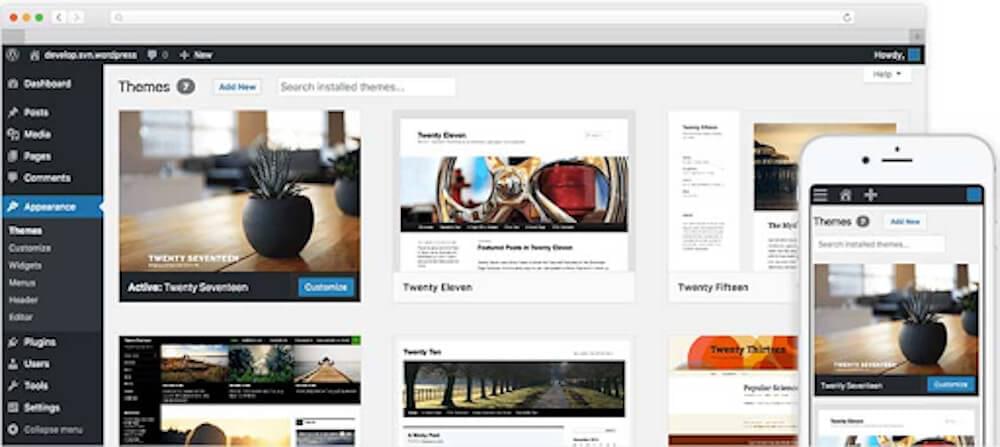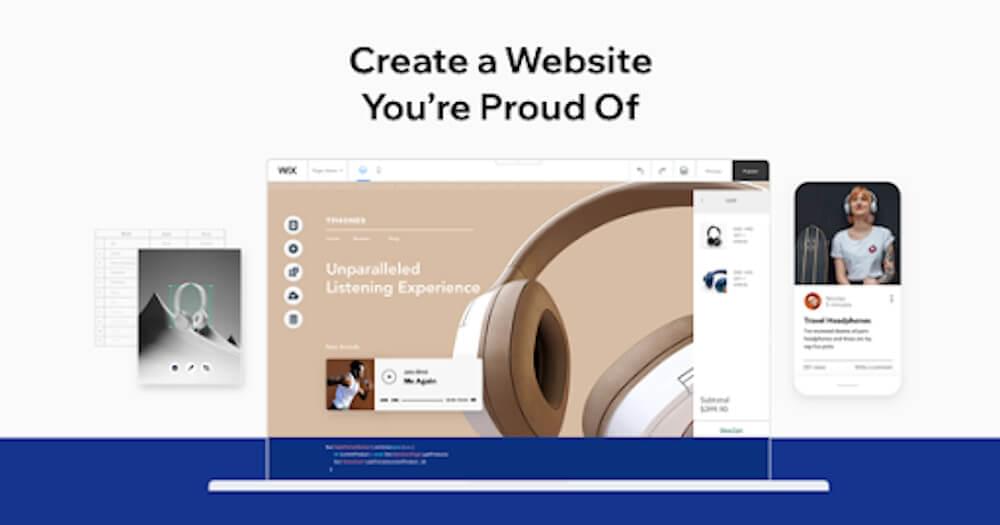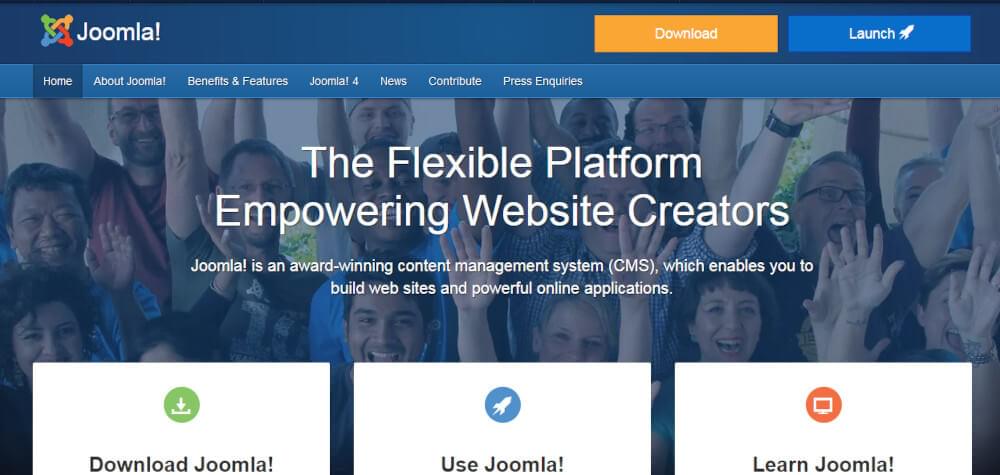Top 6 Best Blogging Sites In 2022
Jun 1, 202113 mins read
In the previous years, blogging sites have already contributed their benefit to writers. At present, it’s now simpler than ever to build a professional-looking blog to distribute a hobby and interest with like-minded people, express your ideas, and make an online presence. These free blogging sites are intended for hobbyist bloggers. Blogs are designed and maintained online and hosted on the blogging platform’s servers.
When searching for the best free blogging service, your decisions will depend mainly on your requirements and how much work you’re adjusted to settle into your blogging. Suppose you’re up to establish a notable quantity of time to obtain to grips with complex software. In that matter, some platforms allow you an impressive-looking website with many functionalities. But, if you aspire to partake in your writing with the world and worry less about your blog’s aesthetic, there are lots of quick and easy alternatives to begin a blog with least confusion.
How to Decide The Best Blogging Platform To Use
Before plunging into the list of the best blog sites to use, it’s essential to make sure you understand what you’re watching for in a blogging platform.
- The setup process. If you’re unfamiliar with blogging or even just considering building a blog, you may not be very technically inclined yet. So, you need to watch for a super user-friendly blogging platform.
- Featuring monetization. Even if it’s not something you require to do best now, you’ll need a platform that allows you to earn money off your site if you want to prepare that in the future.
- Flexibility for site expansion. As your blog develops, you’ll need to adjust your site’s appearance and add new high-level features to boost your growing audience.
Now that you have a more reliable impression about exactly how to choose the best blogging platform to create your blog:
Which Is the Blogging Platform That Is Best For Beginners?
1. WordPress
It is definitely and extensively the best free blogging platform. Almost a third of the world’s websites are built utilizing WordPress.org, and it’s not difficult to know why. This platform has been around for decades and has a vast and active community. WordPress was launched in 2003, and it’s an open-source content management system, so the website-building software itself is available. Although you’ll still have to spend for your domain name and web hosting, it is optional unless you want your own domain. On the positive side, the only ads that will appear on your site are those you prefer to place there and benefit from or none at all.
WordPress.org is very robust, so the only boundary to how you need your blog to watch and use is the amount of work you’re prepared to put into determining your route around the CMS. This system is considerably complicated to apply, especially if you have no technical or design expertise.

Pros:
- Complete control over your blog Utilizing this robust Content Management System allows you to build any site from a WordPress blog to an eCommerce shop.
- Simply customize your website’s appearance You can utilize drag and drop website builder themes such as Divi, or OceanWP to quickly create your WordPress site to look exactly the way you want it and build a custom login form to develop your branding.
- Many available plugins SEO, analytics, and other functions that you wish to easily and speedily set up with a positive result, WordPress plugins come in handy. You can opt for All in One SEO plugin to add tons of additional SEO features or add an Automatic Blog/Article Reader like WebsiteVoice.
Cons:
- Not beginner-friendly platform Can have a small training tool for non-technical people who don’t do significant tutorial sites like WPBeginner.com
- Doesn’t manage security You’ll require to maintain your own backups and security measures inside your WP site.
2. WIX
Wix is a known free website builder that can be controlled from the front-end. This platform’s central feature is that it comes with drag-and-drop selections, so you don’t have to control anything in the back-end. The design is very spontaneous and current, which can be utilized by both beginners and seasoned developers. The excellent point about Wix is that it has free hosting added, so you just require to regulate the layouts, choose a template, and you’re all established. It presents a nice array of free and premium themes and templates for various purposes, including blogging.
To start a Wix blog, sign up and present a choice. You can either let the Wix AI design a site for you based on a questionnaire or create your blog yourself, including picking a template and adjusting the layouts via the WYSIWYG editor. If you continue with the secondary option, all you want to do is get a beautiful template and start customizing everything on the front-end in a live preview mode.

Pros:
Wix is a fabulous opportunity if you require an uncomplicated but powerful blogging platform. With its drag-and-drop website builder, it’s an uncomplicated option if you’re attending to have your blog on your site rather than on a blog platform or services like Medium or another kind of social media.
Cons:
The negative side is you’ll be spending a subscription price, and you’ll be barred into Wix’s themes and tools. So, you’ll purchase some support for some flexibility.
3. Medium
Medium is a multipurpose platform launching various topics where anyone with an account can write and publish. Unlike most other free blogging sites, the significant benefit of Medium is that your articles will be exposed to a broad audience since 60 million readers visit the platform per month, and the number grows every year.
It’s super manageable to use – just a simple sign-up and start writing. But the negative side is that all your content is on Medium. You’re not really building your own “place” like you would with WordPress.

Pros:
- Easy to use There’s hardly any setup needed.
- Reporting This gives a powerful reporting tool so you can discover more about your readers and how they’re interacting with your posts.
- Concentrate on writing It’s a content-first type of platform so that you focus on writing, and they manage the design
Cons:
- Monetization is not possible You can’t earn money off of the Medium platform.
- Content-control You have limited control over your content.
- Restricted features Very few selections to customize your site.
4. Weebly
Weebly is very comparable to Wix, and the two are close competitors. The principal distinction between them is that Weebly has fewer features than Wix, and you take fewer selections to customize your blog’s appearance and sense. The same indication, though, that performs it more straightforward to use and get up and working with, so it might be a more reliable chance if you’re new to blogging.
Comparable to Wix, Weebly is based on drag-and-drop elements, empowering you to build a website – highlighting a Weebly ad instantly. Hosting is covered, even in the free program. You gain access to customizable layouts, a collection of free themes, and the usual sharing features you’d anticipate to help spread your blog posts on a broader coverage.

Pros:
- Additional feature Plans arise with a free SSL certificate
- Weebly Promotion Benefits you grow your email list
Cons:
- Exporting problems It’s tough and complicated to export your website to another platform if you want to do so.
- Insufficient integrations Fewer options for 3rd-party services.
- Lacks highlights Insufficient built-in features to customize your website’s purposes.
5. Blogger
Blogger is considered one of the oldest free blog sites, although its reputation has declined in recent years. It’s a reliable solution for personal blogs, but it’s not the best professional practice source. It operates just like the other hosted platforms. You are required to generate an account first to use it. After simple signup, you have to choose one of the default themes so you can start writing your thoughts down. This platform has an interface comparable to a Google+ profile, and the editor resembles a Word page.
Blogger presents many themes to take from, including distinctive skins, exceptional color filtering, and multiple minimalist gadgets or widgets. But nothing too intricate or any superior design customization. Overall, Blogger has simplistic appearance advantages, so the center lingers more on the writing portion. A delightful part about this site is that it comes with ad places that you can place in your content compositions.

Pros:
- Manageable to start Effortlessly set up and design a blog without spending on anything.
- Supported by Google The technology giant maintains the platform, so it’s protected and secure.
Cons:
- Lack of updates The platform doesn’t get updated often.
- Design limitation The selections for customization and design are remarkably limited.
- Insufficient features You can’t develop your blog with the bit of basic blogging tools that are presented.
6. Joomla

Joomla is one of the top platform used to build applications and websites. It was first launched in 2005, and then keeps on improving and has grown to multi million users. Content creators and website developers like this platform because its flexibility, security, stability and ease of use.
It is similar to other blogging sites mentions in this article, but requires you to add domain and hosting to it. Joomla offers a variety of templates and intuitive interface that can help manage simple to complex websites. The editor of Joomla is quite old school but is fully functional. Joomla has several volunteers in the community to help make the platform even better. Moreover, you can add text to speech to your Joomla websites.
Pros:
- Flexible CMS: It is easy to customize and create extensions.
- Open source platform: The open source makes it free to use with more customization.
- Multi-Lingual: The platform offers multiple languages support.
- Search engine optimized: The platform structure is fully optimized for search engines.
Cons:
- Old school user experience: The editor looks a bit old school while other CMS has better feel.
- Requires hosting: You will need to add your own hosting and domain.
Final Thoughts
Which one seems like the most suitable solution for you? If you’re looking for a straightforward way to begin a blog and aren’t concerned about earning a profit with your site, something like Wix as a free blogging site might be your rate, at least from an opening point.
If you require something fun and a little unique with a built-in community, you may aspire to pick Tumblr. Out of all the choices covered on today’s list, a self-hosted WordPress.org site and hosting with Bluehost are among the most excellent options. WordPress.org is the most adaptable, robust, and cost-efficient way to build your blog. It has a low training curve and comes with tons of essential plugins to help you market and monetize your online work.
Anyone can get started with WordPress, and there’s a good reason why it’s become the most popular blogging platform globally.









